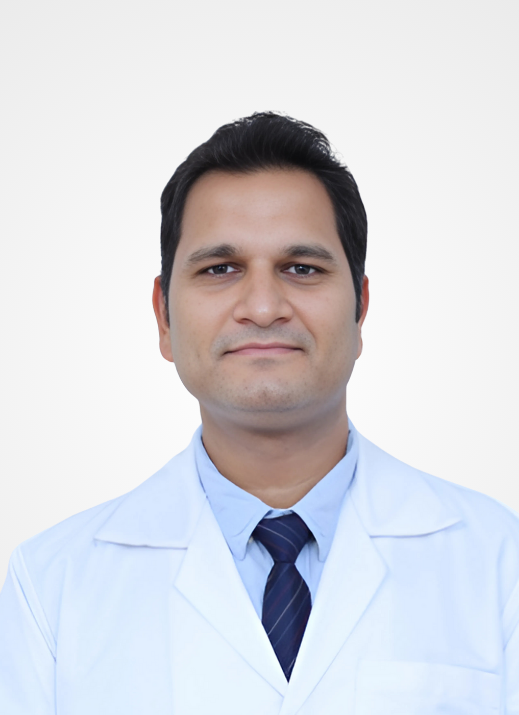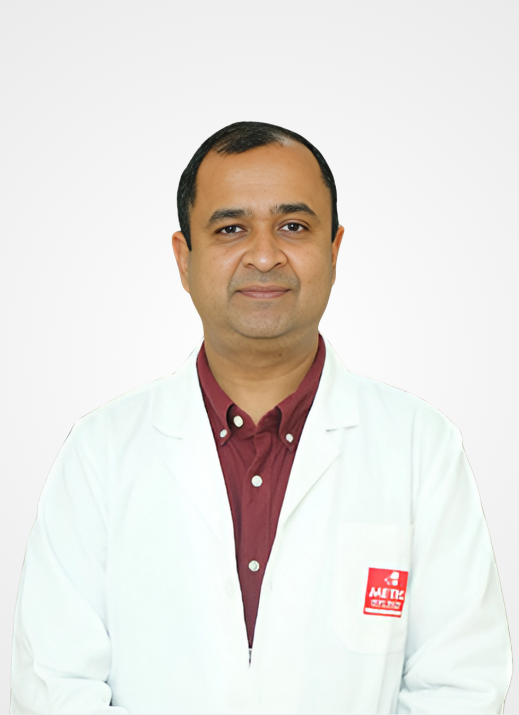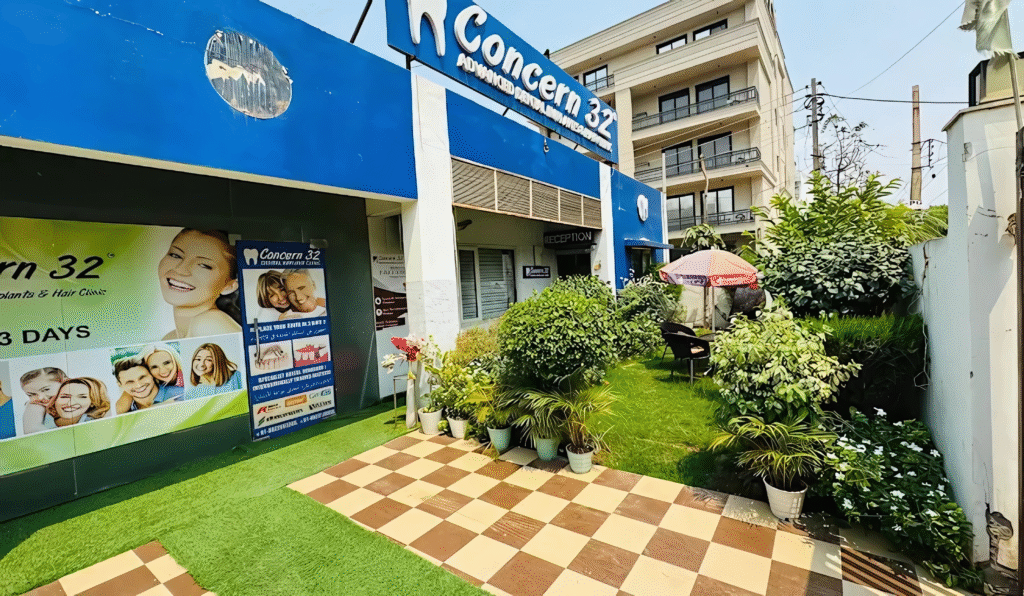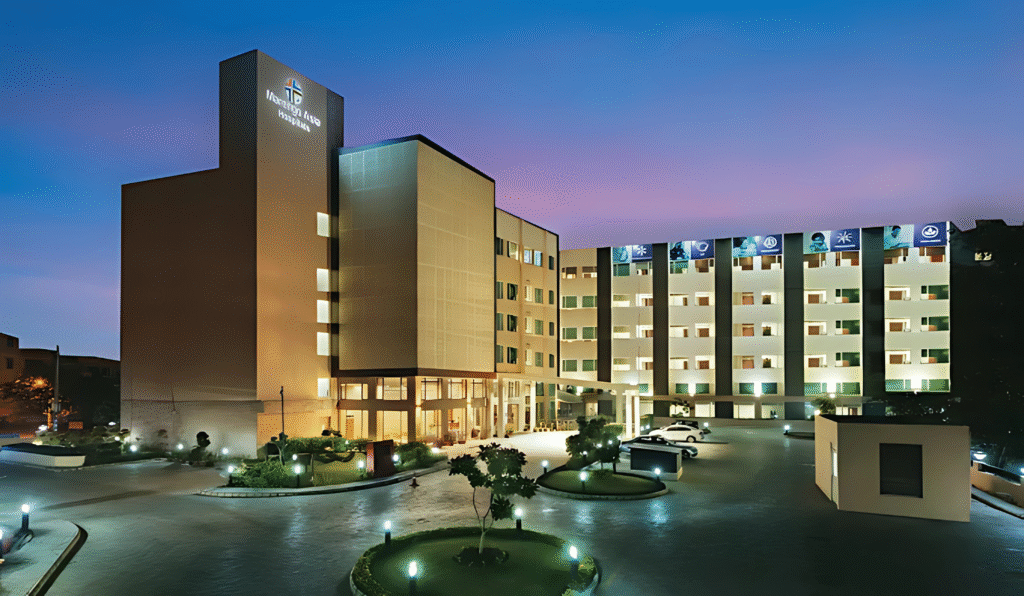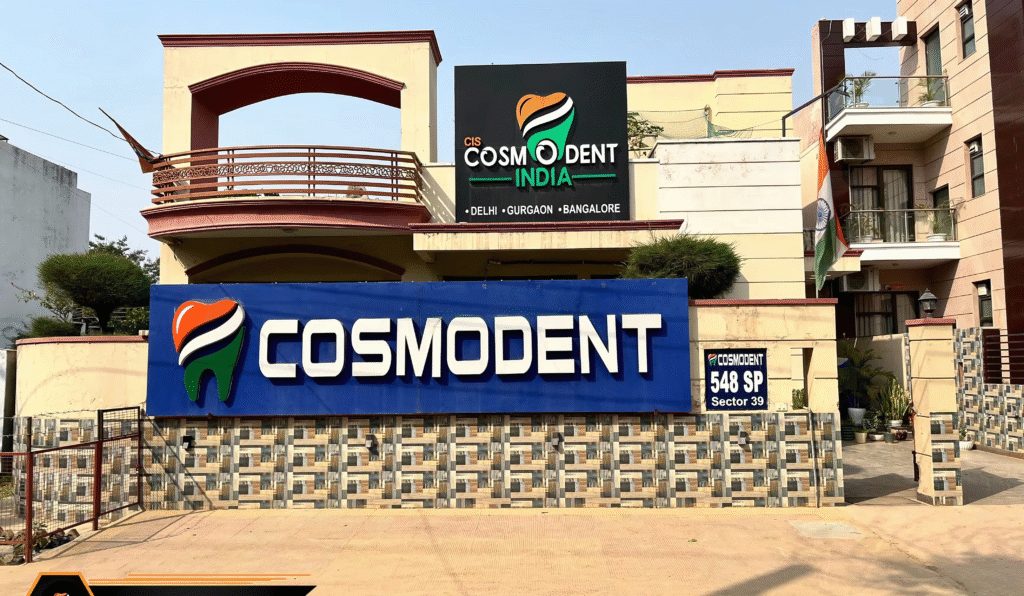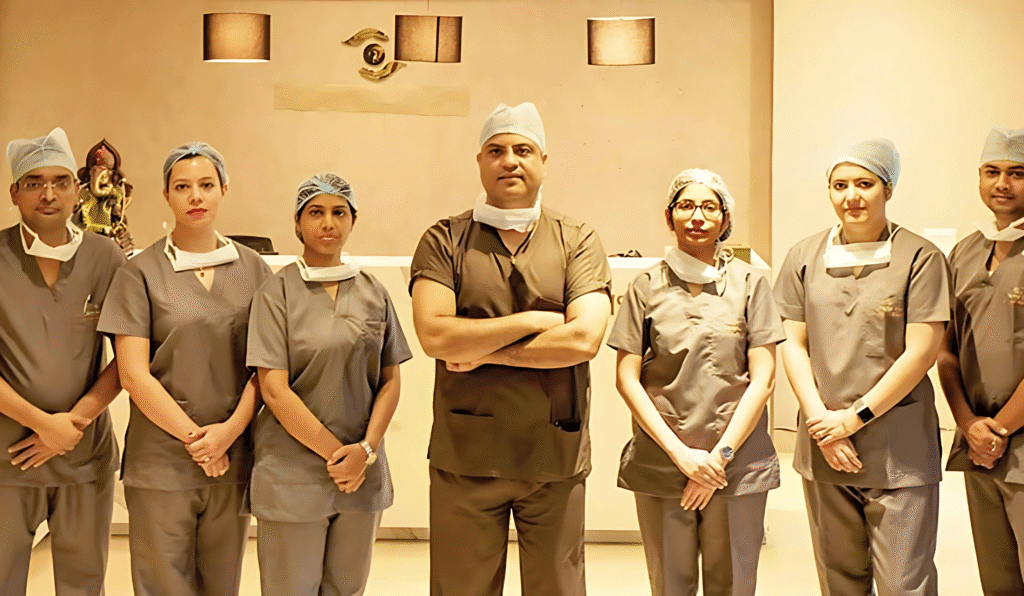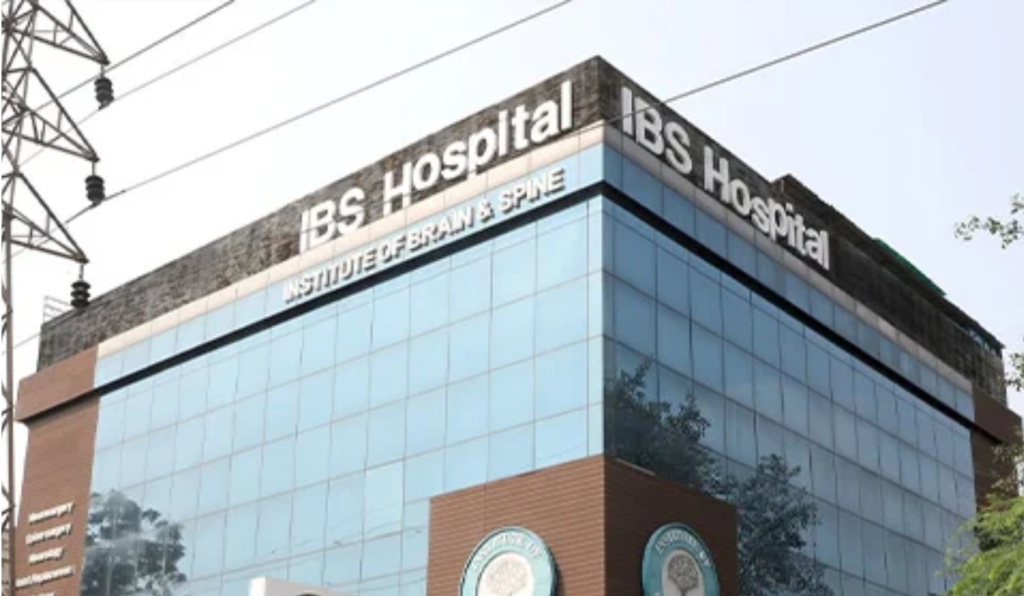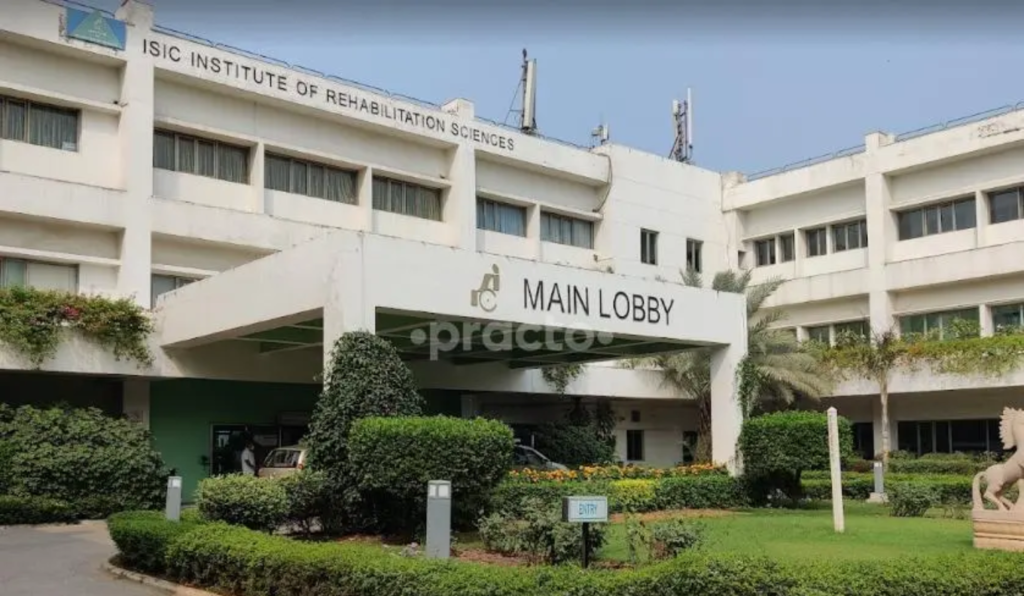Esophageal Cancer Treatment Cost in India

What is Esophageal Cancer?
Esophageal cancer is a type of cancer that develops in the esophagus — the long, hollow tube that connects the throat to the stomach. This tube helps move food and liquids from the mouth to the digestive system. When cancer cells begin to form in the inner lining of the esophagus and grow uncontrollably, they can form a tumor that interferes with swallowing and digestion.
There are two main types of esophageal cancer:
Adenocarcinoma, which typically occurs in the lower part of the esophagus, and
Squamous cell carcinoma, which usually develops in the upper or middle sections.
Esophageal cancer is often diagnosed at an advanced stage because early symptoms can be subtle or mistaken for other digestive issues. Early detection and timely treatment significantly improve outcomes.
How Does Esophageal Cancer Develop?
Esophageal cancer develops when the cells lining the esophagus undergo mutations in their DNA. These genetic changes cause the cells to grow and divide uncontrollably, eventually forming a tumor. Over time, the tumor can invade deeper layers of the esophagus and spread to nearby lymph nodes or distant organs through the bloodstream or lymphatic system.
The development usually follows this progression:
Chronic Irritation: Conditions like acid reflux, smoking, or alcohol consumption cause repeated damage to the esophageal lining.
Cellular Changes: Prolonged irritation may lead to changes in the cells, such as Barrett’s Esophagus, a precancerous condition.
Dysplasia: Abnormal cells start appearing, increasing the risk of turning cancerous.
Cancer Formation: The abnormal cells multiply and form a malignant tumor that may eventually spread (metastasize).
Early-stage esophageal cancer might not show any noticeable symptoms, making routine screening crucial for individuals at high risk.
Causes and Risk Factors:
While the exact cause of esophageal cancer may vary from person to person, several known risk factors contribute to its development:
Major Causes and Risk Factors:
- Chronic Gastroesophageal Reflux Disease (GERD): Long-term acid reflux can damage the esophageal lining, increasing the risk of Barrett’s Esophagus, a precancerous condition.
- Smoking and Tobacco Use: Significantly raises the risk of squamous cell carcinoma.
- Excessive Alcohol Consumption: Especially when combined with smoking, alcohol greatly increases cancer risk.
- Obesity: Increases pressure on the stomach, promoting acid reflux and raising the risk of adenocarcinoma.
- Age and Gender: Most common in men over 50 years of age.
- Diet: Diets low in fruits, vegetables, and certain vitamins can increase risk.
- Genetic Factors: A family history of esophageal cancer or inherited conditions may also play a role.
- Environmental Exposures: Such as frequent consumption of very hot liquids or exposure to certain chemicals.
Symptoms:
Esophageal cancer may not produce symptoms in its early stages. As the tumor grows, it can cause:
- Difficulty swallowing (dysphagia) — especially with solid foods
- Unexplained weight loss
- Chest pain or discomfort
- Persistent cough or hoarseness
- Indigestion or heartburn
- Vomiting or regurgitation of food
- Fatigue and weakness
If any of these symptoms persist or worsen over time, especially in individuals with known risk factors, prompt medical evaluation is essential for early detection.
Types of Esophageal Cancer
Esophageal cancer is primarily classified based on the type of cells that become malignant. The two main types are:
Adenocarcinoma begins in the mucus-secreting glandular cells that are present in the lower part of the esophagus near the stomach. It is the most common form of esophageal cancer in Western countries and is often associated with:
Chronic acid reflux (GERD)
Barrett’s Esophagus, a precancerous condition
Obesity and smoking
This type tends to grow slowly but can become aggressive if not detected early.
Squamous cell carcinoma arises in the flat, thin cells that line the surface of the esophagus. It typically occurs in the upper and middle portions of the esophagus and is more prevalent in parts of Asia and Africa. Major risk factors include:
Tobacco and alcohol use
Poor nutrition
Exposure to certain environmental toxins
It is often detected at a more advanced stage because it may not cause symptoms initially.
- Small Cell Carcinoma: An aggressive form that grows and spreads rapidly.
- Sarcoma: Originates in the muscle or connective tissue of the esophagus.
- Lymphoma or Melanoma: Extremely rare in the esophagus but possible.
Understanding the type of esophageal cancer is crucial for determining the most effective treatment plan.
Which Type of Esophageal Cancer is Most Dangerous?
Small Cell Carcinoma of the esophagus is considered the most dangerous due to its rapid growth and early spread to other organs. However, both advanced adenocarcinoma and squamous cell carcinoma, when left untreated, can also become life-threatening as they tend to spread to nearby structures and lymph nodes.
Why Choose India for Esophageal Cancer Treatment?
India has become a preferred destination for patients seeking high-quality and affordable esophageal cancer treatment due to several key advantages:
India is home to internationally accredited hospitals with dedicated cancer centers specializing in gastrointestinal and esophageal malignancies. These facilities offer comprehensive diagnostic and therapeutic services under one roof.
Indian oncologists and surgeons are globally trained and experienced in treating complex esophageal cancer cases using advanced surgical and non-surgical techniques.
Patients from around the world choose India for cost-effective treatment options that don’t compromise on quality. This includes everything from diagnosis and surgery to follow-up care.
Indian hospitals offer the latest technologies such as robotic-assisted surgery, endoscopic procedures, targeted therapies, and precision radiation therapy.
Unlike Western countries, where patients often experience long waiting times for surgery or radiation therapy, India provides quick access to treatment.
Appointments with top specialists can be arranged within days.
Surgery or radiation therapy can be scheduled within a week of diagnosis.
This ensures that international patients receive timely medical attention, which is crucial for cancer treatment.
India is a global leader in medical tourism, offering:
✔ Dedicated international patient coordinators
✔ Medical visa assistance for easy travel
✔ Affordable accommodation & travel support
✔ Multilingual staff, including English-speaking doctors
This ensures a smooth and hassle-free experience for foreign patients traveling to India for treatment.
Different Types of Treatments for Esophageal Cancer
The treatment approach for esophageal cancer depends on the cancer stage, location, overall health of the patient, and cancer type. Below are the major treatment options used either alone or in combination:
Chemotherapy uses powerful drugs to kill or stop the growth of rapidly dividing cancer cells. It is often used before surgery (neoadjuvant), after surgery (adjuvant), or in advanced stages to control symptoms and slow progression.
Types:
Systemic chemotherapy: Administered orally or via IV to reach cancer cells throughout the body.
Combination chemotherapy: Uses multiple drugs for better effectiveness.
When It’s Used:
To shrink tumors before surgery
To kill remaining cancer cells after surgery
For advanced/metastatic esophageal cancer
Benefits:
✔ Can reduce tumor size
✔ Helps prevent recurrence
✔ Treats cancer that has spread
Targeted therapy uses drugs that specifically block cancer cell growth by targeting proteins or genes involved in tumor development, such as HER2 or VEGF.
Types:
HER2 inhibitors (e.g., trastuzumab for HER2-positive tumors)
Anti-angiogenesis agents (e.g., ramucirumab to block blood supply to tumors)
When It’s Used:
In HER2-positive esophageal adenocarcinoma
Often combined with chemotherapy in advanced stages
Benefits:
✔ More precise than traditional chemo
✔ Fewer side effects
✔ Effective in specific genetic profiles
How It Works:
Immunotherapy reactivates the body’s immune system to recognize and attack cancer cells. Drugs like checkpoint inhibitors block the proteins that shield cancer cells from immune attacks, exposing them to immune destruction.
When It’s Used:
In advanced or recurring cancers
Especially effective for tumors with high PD-L1 or genetic mutations (MSI-H)
Benefits:
✔ Long-term immune defense
✔ Can work when other treatments don’t
✔ Generally fewer side effects
Radiation therapy uses high-energy X-rays to directly damage the DNA of cancer cells, preventing them from dividing and eventually killing them. It’s usually delivered from an external machine (External Beam Radiation).
When It’s Used:
With chemotherapy before surgery
After surgery to destroy remaining cells
To ease pain and swallowing difficulties in advanced cases
Benefits:
✔ Targets tumor with precision
✔ Relieves symptoms
✔ Can be combined with other treatments
How It Works:
A light-sensitive drug is injected into the bloodstream and absorbed by cancer cells. A special light is then directed at the tumor through an endoscope, activating the drug and producing a chemical reaction that kills the cancer cells.
When It’s Used:
In early-stage esophageal cancer
For patients unable to undergo surgery
As a palliative measure
Benefits:
✔ Minimally invasive
✔ Preserves healthy tissue
✔ Quick recovery time
Different Procedures for Esophageal Cancer
Esophagectomy is the surgical removal of part or all of the esophagus. The remaining part of the esophagus is then reconnected to the stomach or colon to allow food intake.
When It’s Used:
Early to locally advanced esophageal cancer
When the tumor is confined and operable
Benefits:
✔ Offers potential cure if cancer hasn’t spread
✔ Removes the primary tumor and nearby lymph nodes
✔ Can be followed by reconstruction to restore swallowing
How It Works:
A self-expanding metal or plastic stent is placed inside the esophagus using an endoscope to keep it open. This helps improve swallowing in patients with narrowing caused by tumors.
When It’s Used:
In advanced stages to relieve symptoms
When surgery is not an option
As palliative care
Benefits:
✔ Immediate relief from difficulty swallowing
✔ Minimally invasive and quick procedure
✔ Improves quality of life in inoperable cases
How It Works:
MIE involves removing the esophagus through small incisions using laparoscopic or thoracoscopic tools, reducing trauma to surrounding tissues.
When It’s Used:
For early to mid-stage esophageal cancer
In patients fit for surgery with localized tumors
Benefits:
✔ Smaller incisions and less pain
✔ Faster recovery and shorter hospital stays
✔ Lower risk of complications compared to open surgery
How It Works:
Cryotherapy uses extreme cold to freeze and destroy abnormal or cancerous cells in the esophagus. A probe is passed through an endoscope to deliver the treatment directly to the affected tissue.
When It’s Used:
For early-stage esophageal cancer
For precancerous lesions like Barrett’s Esophagus
In patients not suitable for surgery
Benefits:
✔ Minimally invasive
✔ Preserves the structure of the esophagus
✔ Can be repeated if needed
How It Works:
Surgeons use robotic systems to perform esophagectomy or tumor removal with enhanced precision and control. The robot translates the surgeon’s movements into smaller, exact actions inside the body.
When It’s Used:
For eligible early to mid-stage cancers
When precision and nerve preservation are crucial
Benefits:
✔ High surgical accuracy
✔ Less blood loss and scarring
✔ Faster recovery and fewer complications
Other Advanced Procedures for Esophageal Cancer
How It Works:
EMR involves using an endoscope to remove superficial cancer or precancerous growths from the inner lining of the esophagus. A liquid is injected under the lesion to lift it, then it’s snared and removed.
When It’s Used:
For very early-stage esophageal cancer (Stage 0 or I)
When the tumor hasn’t spread beyond the inner layers
Benefits:
✔ Organ-preserving alternative to surgery
✔ Minimally invasive, outpatient procedure
✔ Quick recovery with minimal discomfort
How It Works:
A more advanced version of EMR, ESD allows for deeper and more precise removal of larger or flat esophageal tumors from the submucosal layer using a special endoscopic knife.
When It’s Used:
For early-stage but larger or complex esophageal tumors
When en-bloc (one-piece) removal is required
Benefits:
✔ Greater control and accuracy
✔ Reduces recurrence risk
✔ Avoids open surgery in selected cases
How It Works:
A radioactive source is placed inside or next to the tumor using an applicator. It delivers targeted high-dose radiation to the tumor with limited exposure to nearby tissues.
When It’s Used:
As palliative treatment for advanced cases
Sometimes after external radiation to improve swallowing
Benefits:
✔ Localized radiation minimizes side effects
✔ Improves swallowing in advanced disease
✔ Outpatient or short-stay procedure
How It Works:
A light-sensitive drug is injected into the body. It accumulates in cancer cells and is activated by a laser light directed through an endoscope, destroying the cancerous tissue.
When It’s Used:
For early-stage esophageal cancer
In cases where surgery isn’t possible
For residual or recurrent tumors
Benefits:
✔ Non-invasive and precise
✔ Can be repeated if necessary
✔ Preserves normal esophageal structure
How It Works:
Artificial intelligence tools analyze imaging scans and endoscopic visuals to detect esophageal cancer at a very early stage or predict treatment outcomes more accurately.
When It’s Used:
During initial diagnosis
For ongoing monitoring during or after treatment
Benefits:
✔ Enhances early detection
✔ Enables more personalized treatment planning
✔ Supports better treatment outcomes
Best Doctors for Prostate Cancer Treatment in India
Best Hospitals for Prostate Cancer Treatment in India
Med Travel India Offerings
How does Med Travel India help you?
Med Travel India is dedicated to assisting international patients in accessing high-quality prostate cancer treatment in India. From selecting the best hospitals to providing logistical support, we ensure a seamless medical journey. Our team works closely with top oncologists and healthcare facilities to offer personalized treatment plans tailored to each patient’s condition.
We take care of every aspect of medical travel, allowing patients to focus solely on their recovery. Below is a list of services provided by our company:
Services offered by Med Travel India

Seamless Planning for Your Medical Journey
Before you even arrive, we take care of all the groundwork. From connecting you with top specialists to ensuring all necessary medical evaluations are completed, we make your journey stress-free. Our goal is to provide clarity and comfort before your treatment begins.
- Free Medical Consultation
- Personalized Treatment Plan
- Estimated Cost & Duration
- Visa Assistanc
- Second Opinion Service
- Pre-Arrival Coordination
Worry-Free Travel & Comfortable Stay
We ensure that your journey to India is as smooth as possible. From booking your flights to arranging a comfortable stay near your hospital, we handle everything so you can focus on your health.
- Flight Booking Assistance
- Accommodation Booking
- Airport Pickup & Drop
- Language Interpretation Services
- Local Transport Arrangements
- Currency Exchange Support


World-Class Medical Care, Personalized for You
We ensure that your medical treatment is well-organized and efficient. Our team works closely with hospitals to facilitate smooth admissions, consultations, and procedures, ensuring you receive top-quality healthcare.
- Priority Appointment Scheduling
- Direct Hospital Admission
- Specialist Doctor Assignment
- Pharmacy & Medical Supplies
- Hospital Admission & Discharge Support
- 24/7 Customer Assistance
Continued Support for a Speedy Recovery
Your health journey doesn’t end after treatment. We provide post-procedure assistance to ensure a smooth recovery, whether you stay in India for rehabilitation or return home.
- Post-Surgical Care Coordination
- Rehabilitation & Physiotherapy
- Virtual Doctor Consultations
- Diet & Lifestyle Guidance
- Extended Stay Arrangements
- Post-treatment Medical Supplies


Beyond Healthcare, A Comfortable Experience
We offer additional services to make your stay in India comfortable and enriching, ensuring that your well-being is cared for beyond the hospital.
- Medical Insurance Settlement Help
- SIm Card Assistance
- Customized Sightseeing Tours
- Medical Document Assistance
- Personalized Assistance for Family Members
- Concierge Services
Reviews From Our Patient





